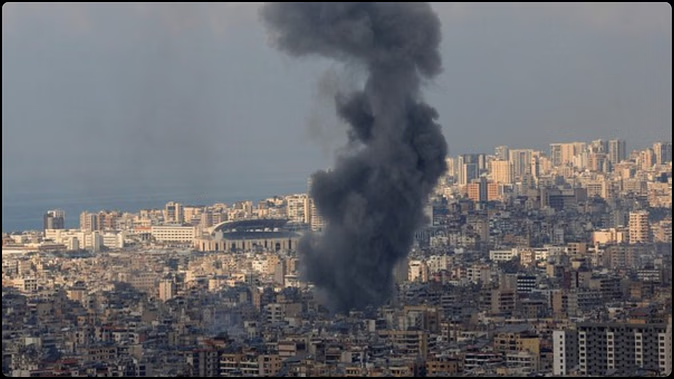Israel vs. Houthi Rebels: Escalation Intensifies as Israel Strikes Yemen’s Hodeidah Port Amid Rising Tensions
Tensions in West Asia continue to spiral as violent clashes, missile attacks, and airstrikes deepen the conflict between Israel and the Houthi rebels of Yemen. In the latest episode of hostilities, the Israeli military has launched a significant strike on Yemen’s strategic Hodeidah port. The attack comes in direct response to the activation of Houthi air defenses, which were deployed in an attempt to block Israeli aircraft from entering Yemeni airspace.
According to initial reports, Israel’s operation was aimed at weakening the Houthi rebels’ growing defense systems and crippling their military infrastructure. The Israeli military stated that the strike was a necessary step to breach advanced air defenses operated by the Houthis. Houthi representatives, however, countered these claims, asserting that their forces successfully repelled Israeli aircraft, forcing several planes to retreat from Yemeni skies. Yahya Saari, a spokesperson for the Houthi movement, announced that the rebels remain firm in their resistance and claimed that Israel’s offensive had failed to achieve its full objectives.
Israeli Airstrikes Target Rebel-Controlled Port
Israel later confirmed that its strikes specifically targeted “military infrastructure” at the Hodeidah port, which has long been under the control of Houthi rebels. Israeli officials argued that the port was being used as a hub to receive weapons shipments from Iran and to coordinate attacks against Israel and its regional allies. By striking this facility, Israel aims to disrupt the Houthi supply chain and weaken the rebels’ capacity to carry out cross-border strikes.
Ongoing Clashes and Civilian Casualties
This latest escalation comes only a week after a separate Israeli strike killed at least 31 people in Yemen. The attack, which devastated parts of the capital Sanaa and the surrounding Jawf province, drew widespread condemnation from humanitarian groups and local authorities. According to the Houthi-controlled Health Ministry, the victims included not only fighters but also civilians, journalists, and even cultural workers. The strike damaged Yemen’s military headquarters, several fuel stations, and residential neighborhoods. Heritage sites such as the National Museum and government offices in Hazm were also left in ruins, further deepening the humanitarian crisis in the region.
Funerals for those killed in last week’s attack were still underway in Sanaa when Israel launched its new strike on the Hodeidah port. Images emerging from the Yemeni capital showed grieving families, destroyed homes, and civilians expressing anger over what they called “unprovoked aggression.”
Regional Implications
The conflict between Israel and the Houthi rebels adds a new layer of instability to West Asia, where multiple flashpoints—including the Gaza war, Lebanon’s Hezbollah-Israel tensions, and Iran’s growing regional influence—have already created a volatile environment. Analysts warn that Israel’s decision to expand its strikes into Yemen could provoke a larger confrontation, particularly as Iran continues to support the Houthis with military and financial aid.
Both sides remain firm in their positions, with Israel vowing to eliminate external threats to its security and the Houthi rebels pledging to defend Yemeni sovereignty. As airstrikes and counterattacks continue, the humanitarian situation in Yemen—already one of the world’s worst due to years of civil war—threatens to deteriorate further.
